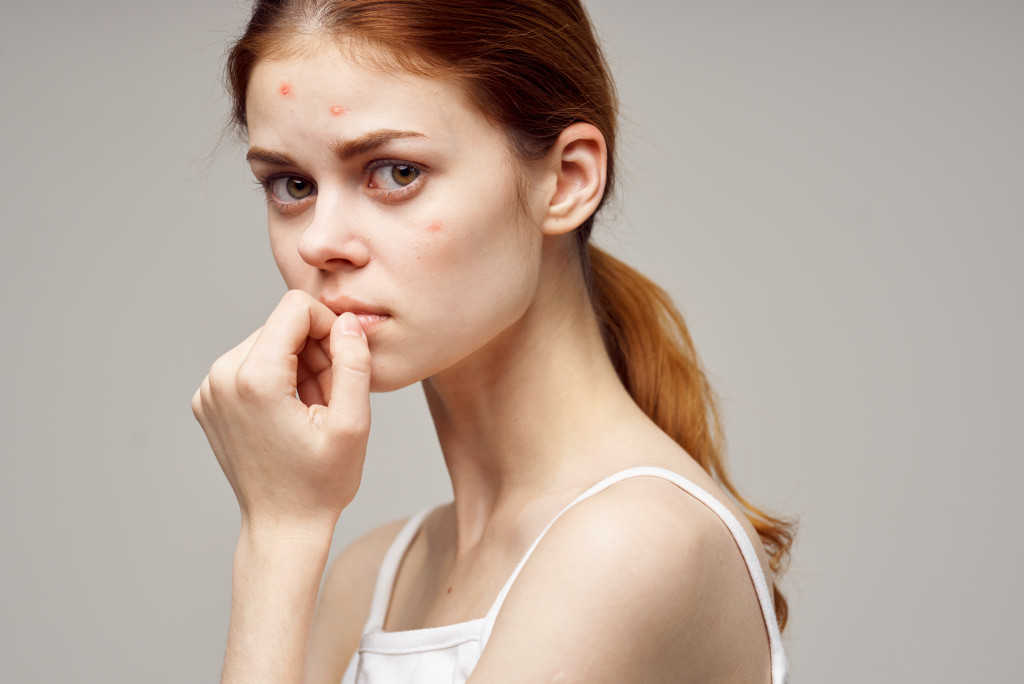- The skin’s appearance significantly affects self-esteem; healthy skin can boost confidence, while skin problems can lower it.
- Acne scarring, poor hygiene, signs of aging, skin color, and skin conditions can negatively impact self-esteem.
- Treating skin conditions, maintaining a good skincare routine, and protecting the skin from sun damage can enhance self-confidence.
- A positive outlook, regular exercise, healthy nutrition, and proper mental health care are critical for self-esteem and skin health.
- The relationship between skin and self-esteem is reciprocal and profound, emphasizing the importance of self-care and self-love.
Your appearance is a significant factor in determining your self-esteem. And for many people, skin is a major factor in their appearance. The skin is the largest organ in the body and is vital in keeping us physically and emotionally healthy. A radiant, healthy-looking complexion can boost someone’s confidence, while skin problems such as acne or aging can significantly impact a person’s self-esteem. Here’s what you need to know about self-esteem and skin, how they affect each other, and ways to deal with it.
Skin and Self-Esteem
Self-esteem is how you feel about yourself and your overall sense of worth. Your skin plays a vital role in this—when it looks good, you feel more confident; it can harm your self-esteem when it doesn’t look how you’d like. Skin problems such as acne or wrinkles can cause feelings of low self-worth and make it difficult to feel comfortable in your skin. Also, how you perceive yourself can influence how others view and interact with you.
1. Acne Scarring
The aftermath of acne can often lead to scarring, which can cause individuals to feel self-conscious. The texture and appearance of acne scars can draw unwanted attention and make someone feel less confident. People suffering from acne scars can sometimes become introverted and avoid social situations altogether.

2. Hygiene
Poor skin hygiene is a significant factor that can affect self-esteem. Individuals who do not adequately care for their skin can develop various skin problems, such as acne, chronic dry skin, and other conditions that can cause discomfort and reduce self-confidence.
3. Signs of Aging
As people age, their skin changes, and the appearance of wrinkles, fine lines, and age spots make it apparent that we are no longer young. While the natural aging process is something people should celebrate, it can cause some people to feel insecure about their appearance.
4. Skin Color
Your skin color can also play a significant role in your self-esteem. Individuals with uneven skin tone or extreme light or dark skin can face judgment, discrimination, and ridicule. Remember that all skin types are beautiful, and should appreciate the diversity of skin colors.
5. Scaly, Flaky Skin
Developing dry patches, psoriasis, or eczema that causes flaky, scaly patches on the skin can make some individuals feel less confident. Treating eczema and psoriasis can be difficult, and a dermatologist should be consulted for the best treatment options.
Ways to Enhance Your Self-Esteem
The good news is that there are many ways to improve your self-esteem and combat any negative feelings you may have about your appearance. Here are a few tips for how to enhance your self-confidence:
Skin Doctor
The first step is to get any skin problems treated. An experienced aesthetic doctor can diagnose and treat skin conditions like acne or eczema. Discuss the best treatment options with your doctor, and make sure to follow their instructions for proper care of your skin.

Skincare Routine
Following a good skincare routine can help improve the appearance of the skin and boost self-confidence. Use products tailored to your skin type, and avoid harsh ingredients such as alcohol or fragrances. Use sunscreen daily to protect your skin from UV damage.
Positive Outlook
Having a positive outlook and thinking positively about yourself is also essential. Focus on what you like about yourself, and be kind when talking to yourself. Also, limit your time comparing yourself to others and focus on your journey instead.
Exercise and Nutrition
A healthy lifestyle is essential for maintaining a healthy complexion. Eating foods with plenty of vitamins, minerals, and antioxidants helps keep skin looking fresh and radiant. Regular exercise can also help improve overall health and self-esteem by releasing endorphins that make you feel good.
Mental Health Care
If you feel overwhelmed or struggle with low self-esteem, consider talking to a therapist for additional help and support. A mental health professional can help identify any underlying issues contributing to your negative thoughts and feelings. Remember that caring for your mental health is as important as looking after your skin!
The relationship between your skin and your self-esteem is reciprocal and profound. Your skin’s health and appearance can influence your feelings of self-worth, while your self-esteem can also impact how you care for your skin. The key to enhancing self-esteem lies in understanding that everyone is unique and beautiful in their way. Embrace your individuality, be kind, and remember that perfect skin does not equate to happiness.

